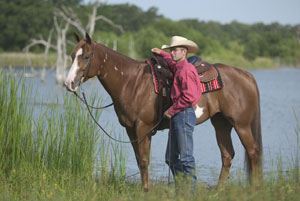Why Lease a Horse?

There are many reasons that some people choose to lease horses, rather than buy them:
Leasing a horse can be a good way of finding out whether you are ready for horse ownership, without the long term commitment of purchasing a horse. If things don’t work out and you find you don’t have the time or financial resources to maintain your leased horse, he can go back to his owners at the end of the lease period.
Horse leasing can also be advantageous when growing teens wish to compete in shows. Having to keep purchasing horses that will fit both their size and ambitions can get expensive, and selling on the previous horse can be harrowing. Even adults can benefit from leasing a horse with more experience in a particular discipline, thereby allowing them to train and compete at a higher level than they would be able to otherwise.
Types of Lease
Leases can be set up in any number of ways and the lease terms can range from the cost of board, vet and farrier to an set monthly “lease” fee on top of those costs. Some leases give you the freedom to treat the horse as your own, making decisions about its boarding, training and showing schedule, as well as full responsibility for its health. Other leases are more restrictive, requiring you to keep the horse at a particular barn, use a specific farrier etc.
Some riding schools offer lease and partial lease programs where, for a set fee you get x-amount of riding and caring for your lease horse each week.
In England, horse sharing is a popular option and horse magazines such as Your Horse have entire sections of classified ads dedicated to loans and sharing. Typically in these arrangements, no money changes hands, but both individuals share in the riding, caring and costs of the horse.
What’s Involved?
Any one considering entering into a lease, loan or sharing agreement should get hold of a copy of Legal Forms, Contracts and Advice for Horse Owners by Sue Ellen Marder, which includes copies of sample leases you can look at to give you some ideas.
Since you are going to be riding and caring for someone else’s horse, it’s important that you sit down together with the owner and discuss what each of you are expecting from the arrangement.
You need to agree on the monthly fee, if any and things like who is responsible for additional costs such as vet care. Think of everything you can – how often the horse is to be ridden, if he should jump, what feed he gets and what supplements, whether he is to be kept stabled or at pasture. Who pays if he is seriously injured while you are riding? What about if he hurts himself badly in the pasture and needs veterinary care? Put all this in writing in the lease so that there aren’t any arguments later on down the road.
It makes good sense to have the horse checked by your own veterinarian, just as you would if you were purchasing. This will help ensure the horse is suitable for your needs and physically capable of performing to the level you desire.
If it is approached with care and responsibility, leasing a horse can be a rewarding experience and a good primer to get you ready for actual horse-ownership.





